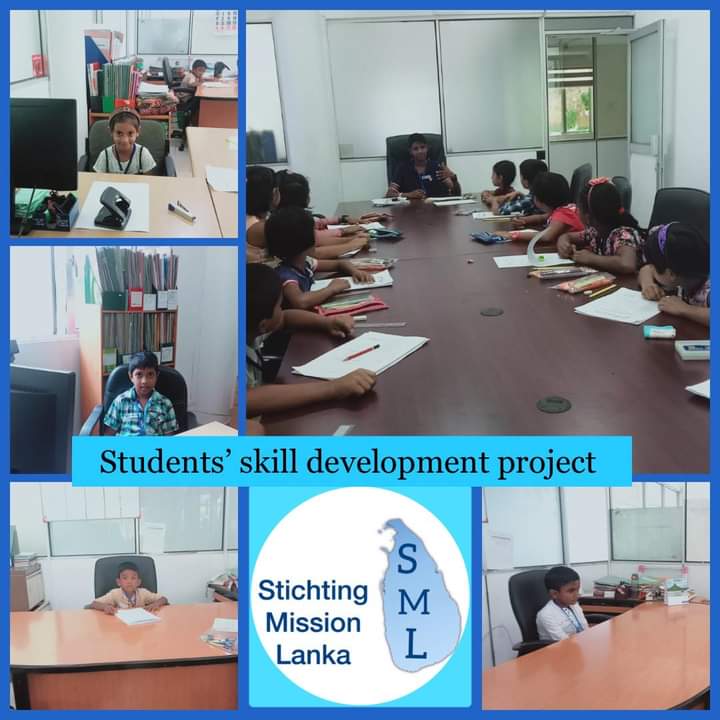Unethical office staff may engage in corrupt practices such as bribery, embezzlement, or favouritism, which can hinder fair opportunities and economic growth.
2. Discrimination
Practices based on ethnicity, gender, religion, or other factors may create a hostile work environment and limit career advancement opportunities for certain groups.
Unethical behaviors among office staff may lead to unfair treatment of employees,including arbitrary disciplinary action , unequal pay or denial of benefits.
Lack of transparency in decision-making processes and administration can erode trust within the workplace and hinder employee morale and productivity.
Nepotism and favoritism in hiring and promotion decisions may result in qualified individuals being overlooked , leading to job insecurity and frustration among employees.
In an environment where unethical behavior is tolerated or even encouraged, there may be limited mechanisms for holding office staff accountable for their action .
Perpetuating a culture of impunity.
Addressing these challenges requires concerted efforts from both government authorities and civil society to promote transparency, accountability and ethical standards in the workplace.
New Sri Lankan office staff may encounter several challenges in their first job including
1.Cultural Adjustment
Adopting the corporate culture communication norms, and office hierarchy can be challenging for newcomers.
2.Languages Barriers
For those not fluent in English communicating effectively in the workplace may pose difficulties ethically if English is the primary language used.
Training junior Students in office premises can offer several benefits
1. Hand-on Experience
Junior students can gain practical, hands-on experience by working in a real office environment. This exposure helps them understand the dynamic of the workplace and apply theoretical knowledge to practical situations.
2.Skill Development
Office training enables students to develop essential skills such as communication, teamwork, problem-solving, time management and adaptability. These skills are crucial for their future professional endeavors.
3. Networking Opportunities
Working in an office environment allows junior students to network with professionals in their field. They can build relationships , seek mentorship , and explore potential career paths.
4. Exposure to industry practices.
Students can observe and learn about industry practices , processes and workflows firsthand . This exposure helps them understand the expectations and standards of the industry they aspire to join.
5.Professional Development
Training in office premises contributes to the professional development of junior students. They learn about workplace etiquette , professionalism , and the importance of accountability and responsibility.
6.Resume Building
Experience gained through office training enhances the student's resources and makes them more competitive in the job market up to graduation. Employers value candidates who have practical experience in real-world settings.
7.Feedback and Evaluation
Students receive feedback and evaluation from professionals, which can help them identify areas for improvement and further development . Constructive criticism from experienced professionals is valuable for their growth.
Sri Lankan Kids might aspire for office experience for several reasons
1.Career Development
Many Sri Lankan youth see gaining office experience as a stepping stone for their career development . They believe that exposure to an office environment can help them understand workplace dynamics, improve professional skills, and enhance their employability.
2. Higher Education Retirement.
Some higher education programs or courses in Sri Lanka may require students to have practical office experience as part of their curriculum or to prepare for enrollment
3.Job opportunities
Sri Lanka , like many other countries , has a competitive job market. Having office experience can give young individuals a competitive edge when applying for jobs. especially in sectors such as business, finance administration, and technology.
4 Net Work Opportunities
Working in an office environment allows individuals to network with professionals in their field, which can open up doors for future job opportunities, mentorship, and collaboration.
5.Professional Development
Office experience provides valuable opportunities for personal and professional growth. It allows individuals to learn about teamwork, communication skills, time management, and problem-solving in a real-world setting.
Overall , gaining office experience is seen as a valuable asset for Sri Lankan youth as they navigate their career paths and strive for success in the professional world.
6.,Time management
Acquiring the necessary technical skills specific to their job role, such as using software programs or understanding industry-specific processes, may require time and effort.
7.Time management
Balancing workload , meeting deadlines and prioritizing tasks can be overwhelming especially for those transitioning from an academic environment to a professional one.
8. Work-life Balance
Adjusting to the demands of full-time employment while maintaining personal interests.
Family commitments and social life can be challenging.
9. Feedback and performance Expectations.
Understanding performance expectations, receiving constructive feedback, and adapting to evaluation are crucial for professional growth but may be intimidating for newcomers.
Addressing these challenges may require patience , proactive learning seeking maintainership and embracing continuous improvement.
It's crucial for officers to have experience in providing service to people effectively.
Lack of experience can indeed lead to difficulties for people.
Experience helps officers understand the needs of the community, communicate effectively and respond appropriately to various situations, Training programs, mentorship opportunities, and ongoing professional development can all help officers gain the necessary experience and skills to serve the community better.
A successful activity carried out as a Research unit of Stichting Mission Lanka
It was implemented by Dr Madhavi Bandara (Research officer )
BA (Uni of Colombo)
MA ( Uni of Colombo)
MEd ( Uni of Colombo)
M Phil / PhD ( American National Business University)
on the instruction and consultation of Mr Shantha Dalugamage , Chairman of Stichting Mission Lanka.
